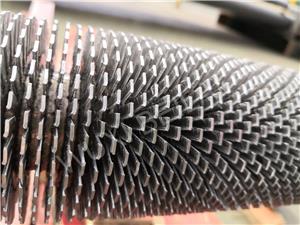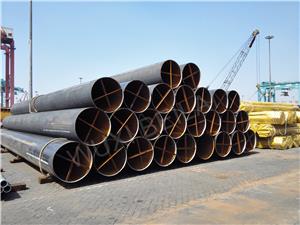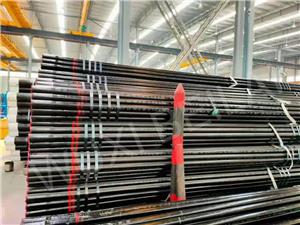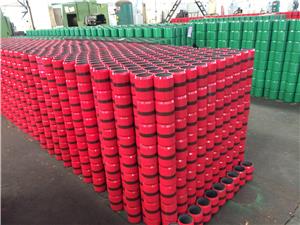Thick-Walled Line Pipe: The Backbone of High-Pressure and Harsh Environment Pipelines
In the oil and gas, petrochemical, power generation, and offshore industries, pipeline durability and safety are of paramount importance. Among the many types of pipes used in critical applications, the Thick-Walled Line Pipe stands out as a robust, reliable, and high-performance solution. Designed to withstand extreme pressure, temperature, and mechanical stress, the Thick-Walled Line Pipe has become an essential component in modern infrastructure.
What is a Thick-Walled Line Pipe?
A Thick-Walled Line Pipe refers to a pipe with a relatively large wall thickness compared to its diameter. This design enhances its ability to handle high internal and external pressures, making it ideal for transporting oil, gas, steam, chemicals, and other critical fluids in severe environments. The wall thickness of a Thick-Walled Line Pipe is typically greater than schedule 80, and it is often custom-manufactured based on specific pressure ratings and application needs.
Advantages of Thick-Walled Line Pipe
The Thick-Walled Line Pipe offers numerous advantages over standard line pipes, especially in challenging and hazardous environments:
High Pressure Resistance: Due to its increased wall thickness, the Thick-Walled Line Pipe can endure higher pressure loads, minimizing the risk of pipe failure in high-pressure systems.
Enhanced Mechanical Strength: The robust structure of the Thick-Walled pipeline improves its mechanical performance under heavy loads, vibrations, and thermal expansion.
Corrosion and Erosion Protection: In corrosive environments, thicker walls provide an extra margin of safety, ensuring longer service life even under aggressive fluid conditions.
Temperature Tolerance: The Thick-Walled pipeline performs exceptionally well in high-temperature applications, making it suitable for steam and superheated water systems.
Applications of Thick-Walled Line Pipe
The versatility of Thick-Walled Line Pipe makes it suitable for a wide range of industrial applications:
Oil and Gas Industry: From upstream exploration to downstream refining, Thick-Walled pipeline is used for transporting hydrocarbons under high pressure.
Offshore Platforms: In offshore drilling and production facilities, Thick-Walled Line Pipe is used in subsea pipelines and risers to combat high external water pressure.
Power Plants: For steam lines, condensate systems, and high-pressure water systems, Thick-Walled pipeline ensures safe and efficient transport.
Chemical and Petrochemical Plants: Aggressive fluids and gases require the strength and resistance offered by Thick-Walled pipeline.
Nuclear Industry: Critical piping systems in nuclear plants rely on Thick-Walled Line Pipe for safety and performance.
Material Selection for Thick-Walled Line Pipe
To ensure optimal performance, Thick-Walled pipeline can be produced in a variety of materials:
Carbon Steel: Widely used for its strength, cost-effectiveness, and availability.
Alloy Steel: Ideal for high-temperature or high-pressure environments where enhanced strength is required.
Stainless Steel: Provides superior corrosion resistance, especially in chemical or marine applications.
Duplex Stainless Steel and Inconel: Used in highly corrosive and demanding environments.
Each material is selected based on the specific media being transported, operational temperature, and external environmental conditions.
Manufacturing and Quality Standards
A high-quality Thick-Walled pipeline must meet stringent international standards such as ASTM, ASME, API 5L, ISO, and EN. Manufacturing processes involve hot or cold rolling, seamless or welded construction, followed by heat treatment, hydrostatic testing, and non-destructive inspection (NDT). Dimensional accuracy and wall thickness uniformity are critical to ensure the performance of every Thick-Walled Line Pipe.
Choosing the Right Thick-Walled Line Pipe Supplier
Partnering with a trusted supplier is essential for securing high-performance Thick-Walled pipeline. A reputable manufacturer should offer:
Full certification and compliance with industry standards.
Customization of pipe diameter, wall thickness, length, and end finishes.
In-house testing facilities for pressure, corrosion, and mechanical strength.
Fast delivery and professional technical support.
Proven experience in handling large-scale pipeline projects.
By working with an experienced supplier, you ensure that every Thick-Walled pipeline you install is engineered for performance, safety, and reliability.
As industries continue to push boundaries into more extreme conditions, the demand for Thick-Walled Line Pipe will only grow. Its ability to handle high pressure, resist corrosion, and deliver long-lasting performance makes it an indispensable solution for modern infrastructure projects.
Whether you're building pipelines in deep-sea environments, laying high-pressure gas lines in deserts, or designing complex chemical facilities, choosing the right Thick-Walled Line Pipe is the foundation of success. Invest in quality, performance, and reliability—choose Thick-Walled Line Pipe for your next project.




